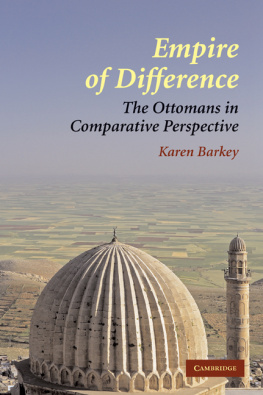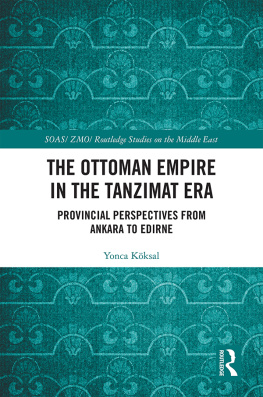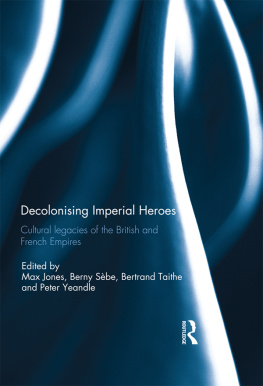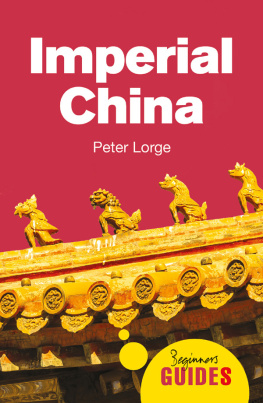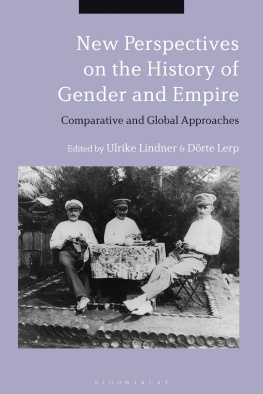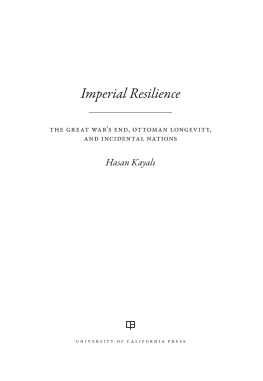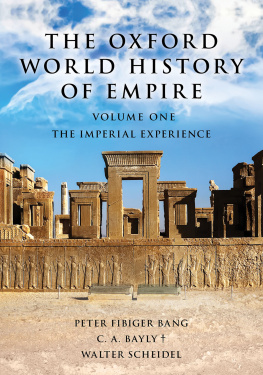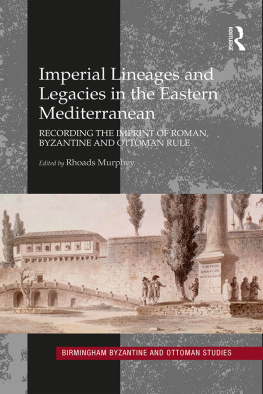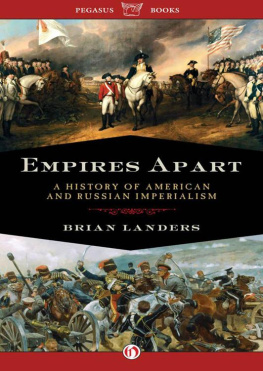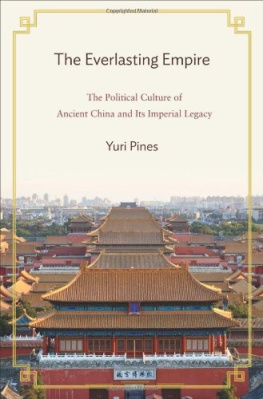Empire of Difference
Empire of Difference: The Ottomans in Comparative Perspective is a comparative study of imperial organization and longevity that assesses Ottoman successes and failures against those of other empires with similar characteristics. Karen Barkey examines the Ottoman Empire's social organization and mechanisms of rule at key moments of its history: emergence, imperial institutionalization, remodeling, and transition to nation-state. She reveals how the empire managed these moments to adapt and avert crises and examines what changes made it transform dramatically. The flexible techniques by which the Ottomans maintained their legitimacy, the cooperation of their diverse elites both at the center and in the provinces, as well as their control over economic and human resources were responsible for the longevity of this particular negotiated empire. Barkey's analysis illuminates topics such as imperial governance, institutional continuity and change, imperial diversity and multiculturalism, multifarious forms of internal dissent, and the varying networks of statesociety negotiations.
Karen Barkey is professor of sociology and history at Columbia University. She is the author of Bandits and Bureaucrats: The Ottoman Route to State Centralization , winner of the Social Science History Award in 1995, and coeditor with Mark von Hagen of After Empire: Multiethnic Societies and Nation-Building: The Soviet Union, and the Russian, Habsburg, and Ottoman Empires.
She has been awarded fellowships from the United States Institute of Peace, Social Science Research CouncilMacArthur, and the National Humanities Center.
CAMBRIDGE UNIVERSITY PRESS
Cambridge, New York, Melbourne, Madrid, Cape Town, Singapore, So Paulo, Delhi
Cambridge University Press
32 Avenue of the Americas, New York, NY 10013-2473, USA
www.cambridge.org
Information on this title: www.cambridge.org/9780521715331
Karen Barkey 2008
This publication is in copyright. Subject to statutory exception and to the provisions of relevant collective licensing agreements, no reproduction of any part may take place without the written permission of Cambridge University Press.
First published 2008
Printed in the United States of America
A catalog record for this publication is available from the British Library.
Library of Congress Cataloging in Publication Data
Barkey, KarenEmpire of difference : the Ottomans in comparative perspective / Karen Barkey.p. cm.Includes bibliographical references and index.ISBN 978-0-521-88740-3 (hardback) ISBN 978-0-521-71533-1 (pbk.)1. Turkey History 18th century. 2. Turkey History Ottoman Empire,12881918. I. Title.DR531.B37 2008956.015dc22 2007046782
ISBN 978-0-521-88740-3 hardback
ISBN 978-0-521-71533-1 paperback
Cambridge University Press has no responsibility for the persistence or accuracy of URLS for external or third-party Internet Web sites referred to in this publication and does not guarantee that any content on such Web sites is, or will remain, accurate or appropriate.
Preface
From the hill of amlca on the Anatolian side of Istanbul, one has a majestic view of the multireligious, multiethnic character of the imperial city, the hub of many civilizations founded from 658 to 657 B.C., captured by Justinian and named the New Rome in 324 A.D., further named Constantinople in 330 A.D., and conquered by the Ottomans in 1453, to be designated Istanbul (from the Greek, eis tin polin : toward the city). In 1458, Istanbul became the capital of the Ottoman Empire.
From this hill of amlca, I often watched my city and listened to two different lessons of history. One was related by my grandfather, an Ottoman subject and a soldier for the empire in World War I, and the other recounted by my father, a modern citizen of the Turkish Republic, born during World War I and coming of age at a time of national reconstruction.
The history that my grandfather told was one of imperial diversity, toleration, and a cultural bazaar. He worked very close to Yeni Cami and Msr Cars (the Egyptian Market) and Rstem Paa Cami, finished in 1561 by the architect Mimar Sinan. His retelling of Ottoman life and culture mirrored the sites that he moved through religious spaces of quietude and serenity; a multihued and vibrant display of eastern smells and tastes; perfumes, incense, drugs, and spices; and along squares filled with boisterous itinerant peddlers, street vendors, and mothers pulling their sons, with threatening images of boogey men lurking around the corner. He took his grandchildren to eat at the Ottoman restaurant Borsa, where he let us order specialties unlike our home cuisine, and filled our minds with the poetry of Bk, Fuzul, Nedm, and many other Divan poets of the empire. His was an Oriental version of the Orient.
The history that my father told was one of the need to move with history, to acknowledge the necessity for modernity, industry, and national consciousness. His was a tale of modernity locked into an Atatrkist version of history, serene in its notion of progress based on diligence and strength. Ottoman greatness for him was embedded in Byzantine continuity; in the early achievements of the Turks; and in what he saw to be the impeccable way in which the Roman, Byzantine, and Ottoman worlds produced marvels of architecture, which he tirelessly narrated to every foreign tourist who visited during his long career as an engineer and businessman. His Orient was on the move, but somewhere entirely different than my grandfather's Orient: the hustle and bustle he saw and appreciated was that of industry and commerce, of trade and economic development, caught up in the relations between the West and a modern Turkey. His was an Occidental version of the Orient.
When I later became interested in the past of this extraordinary city and empire, I realized that neither one of the histories I so carefully listened to were complete, and, in their different understandings of the past and their vision of the future, they did not easily speak to each other. Instead, I have lived with the two pictures together. The manner in which I tried to rearticulate these histories remained unproductive until I understood that the way to bridge these two pasts was through a much more consciously analytic history of the empire. I have tried to understand empire by giving both visions their place, while forging my own representation and interpretation of what I saw as meaningful in my ancestors past. For me, trained in sociology, such an enterprise would focus on the actual workings of empire, to uncover the manner in which empires became such powerful political formations, ruled differentiated groups, and maintained cohesion in times of upheaval. In such a moment of upheaval a period of widespread banditry I had earlier discovered an important key to empire: that empire was a negotiated enterprise, and regardless of its strength an empire has to work with the peripheries in order to maintain a mix of compliance, tribute, and military cooperation, as well as to ensure political coherence and durability.
This theme is further developed in this book, in which my main interest is to understand the longevity of this particular political formation called empire. I carry out an analysis of the Ottoman Empire's social organization and mechanisms of rule at four carefully selected moments of its history: emergence, imperial institutionalization, imperial remodeling, and transition to nation-state. Unlike most comparative studies, my study also examines Ottoman imperial longevity from the Ottoman point of view and assesses Ottoman accomplishments and failures against those of other empires of similar characteristics. My goal is to understand the organization of empire through different moments and therefore contribute to comparative imperial studies. But I also want to better integrate Ottoman history into comparative imperial studies. In writing this book, I was interested in highlighting the mechanisms and machinery of empire, rather than the narratives of battles, wars, and treaties. I am also not setting out to chart a history of the multifarious relations between layers of text produced during the empire and their historical context. Rather, I am trying to understand how institutional and organizational structures enable or hinder the actions of the agents and networks of agents whom I consider crucial to my analysis. Developing an explanation for the longevity of empire, for me, means reconstructing a relatively faithful representation of a social process and identifying the typical actions, interests, and meanings of agents, and networks of agents, relating to each other through webs of association.

